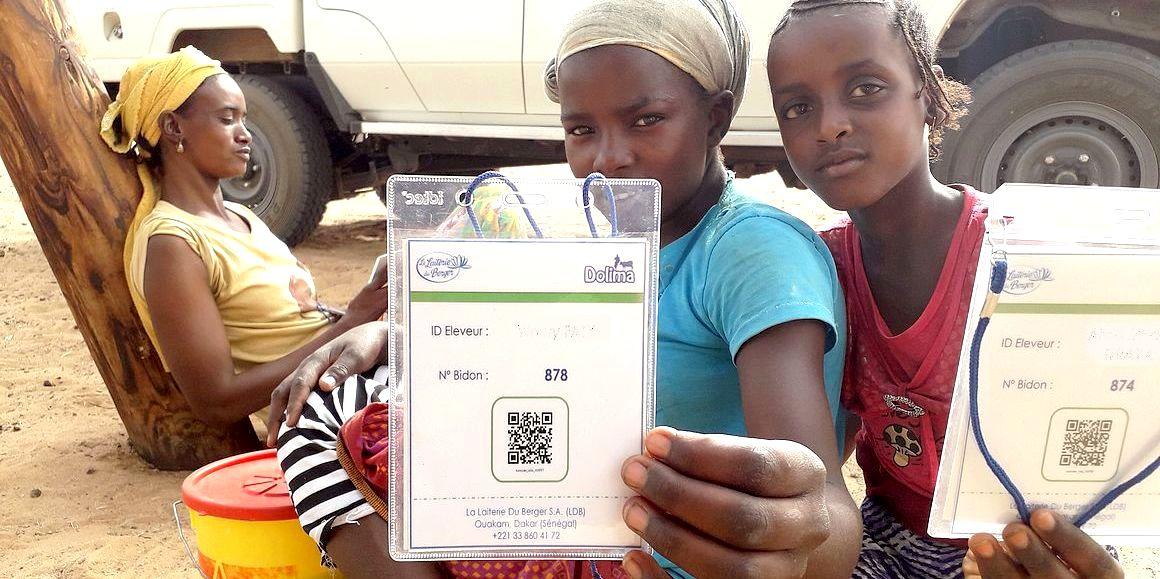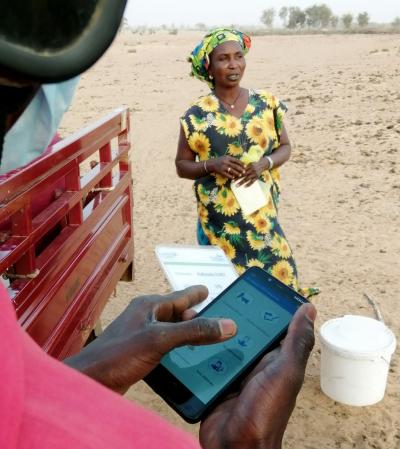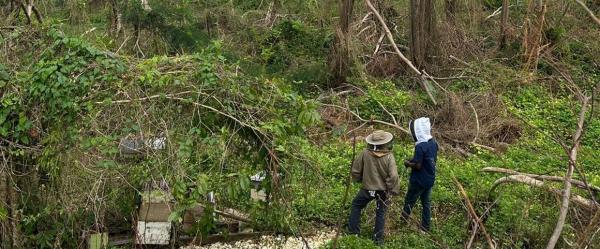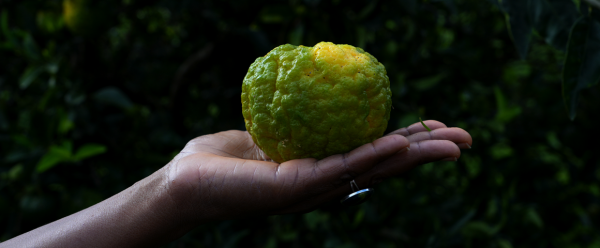Science at work 14 January 2026
- Home
- CIRAD news
- News
- Digital divide in West Africa
Bridging the digital divide in West Africa's agricultural sector

Digital technology is facilitating local milk collection, in this case in Senegal © J. D. Cesaro, CIRAD
Digital technology can be a significant lever for development in West Africa, particularly in terms of agriculture. It can help build more diverse, competitive, inclusive and sustainable farming systems. However, it also brings risks. In addition to data issues, such technology may trigger or exacerbate social and economic inequalities. "Access to and use of digital technology and services in West Africa is already variable", says Nicolas Paget, a CIRAD expert in digital agriculture. While 4G is available in cities, there are still many "white areas" in less populated regions, for instance in the Sahel. Moreover, the related costs and the ability and keenness of potential users also result in inequality, further disadvantaging already vulnerable groups such as small-scale livestock and crop farmers.
Characterizing and analysing the digital divide
The Fracture numérique project was launched in November 2021, to look into and explain the inequalities within three contrasting agricultural value chains: market gardening in Benin, cocoa in Ivory Coast, and milk collection in Senegal. It is funded by the French Ministry for Europe and Foreign Affairs, and led by CIRAD with support from #DigitAg, via the international network set up within the framework of the Digital Agriculture Convergence Lab.
The project will start by using field surveys to study the digital divide. It will go on to look at the causes of variations in use and their consequences for the wellbeing and success of stakeholders in the value chains concerned, by means of individual and collective interviews.
"These case studies should give us an overall picture of the issues surrounding digital technology, to allow us to draw crosscutting conclusions", says project leader Nicolas Paget. "We will then report on those conclusions at collective workshops, to build the capacity of providers to develop digital tools and services that are both relevant and tailored to farmers' abilities and local constraints."
Market gardening to supply cities in Benin
In Benin, market gardeners supply the cities of Cotonou and Parakou with fresh products. "The value chain is highly dispersed and decentralized, and most farmers have their own network through which they sell their products", says Nicolas Paget, who is coordinating this case study in collaboration with the National University of Agriculture in Ketou. However, "the producers involved do not use specific digital tools, although many of them do use social media networks to sell their products or swap tips." In addition to characterizing the digital divide, this case study will also seek to determine whether advanced use of digital technology could help producers to access markets, build knowledge, and network.
Cocoa in Ivory Coast
The cocoa value chain "is highly vertical, with a market characterized by several hundred thousand producers and just a few major buyers", says Martin Notaro, an agronomist at CIRAD who is coordinating this case study in collaboration with the Institut national polytechnique Houphouët Boigny in Yamoussoukro. A group of researchers will be studying three cocoa-producing regions in the East, centre and West of the country, to determine whether digital technology makes the multinationals that buy cocoa beans even more powerful, or whether it could benefit the small-scale producers who make most of their income from this cash crop.
The dairy value chain in the Sahel region of Senegal
The situation is quite different in the case of the dairy industry in northern Senegal, in the silvopastoral zone of Ferlo. "Farmers associated with the Laiterie du Berger dairy have taken on board several digital tools to manage milk collection, payments and cattle feed sales", says Jean-Daniel Cesaro, a CIRAD geographer specializing in flows relating to animal production within territories, who is responsible for this zone under the Fracture numérique project. The project will be working with the Institut sénégalais de recherche agricole in Saint Louis and the dairy innovation platform (PIL) in Dagana to compare the situation of farmers associated with the Laiterie du Berger and that of others who are not.




























